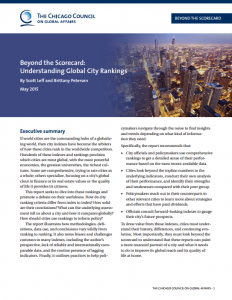When it comes to getting the facts to back up your opinions, who do you trust? How confidently do you repeat information you learned secondhand? How much do others trust you?
There was a time, in the not too distant past, when the American public trusted that the news provided by the Fourth Estate was accurate. The relatively low number of highly reputable magazine and newspaper outlets were beholden to ethical standards of journalism that moderated the political or personal views of the reporters. Likewise, radio journalism and the evening news were seemingly in the hands of sober-minded, impartial observers whose top priority was to be a trusted source of information.
The Internet now gives us unprecedented access to a more diverse array of information, from breaking gossip to traditional investigative journalism. Of course, highly reputable journalism is still practiced, and with gusto—but it’s often drowned out by sheer noise. “If it’s on the Internet, it must be true” and “I read it on the Internet” are cynical jokes meaning that of course the information is probably not true.
So the question has shifted from “What is truth?” to “Whose truth is it?” The real lesson is that you must know the source of the information to gauge its veracity and value. [pullquote]Now, more than ever, we must actively question the source of our information and the agenda of the author or organization behind it.[/pullquote]Now, I admit this observation is neither new (cable news channels and national publications have made their allegiances clear for decades) nor particularly insightful (the majority of people who consume media understand that the source of that content often has an agenda, if only the relatively benign goal of separating you from your money). But now, more than ever, we must actively question the source of our information and the agenda of the author or organization behind it.
This challenge extends beyond news sources to even seemingly sober-minded analysis. My colleague Brittany Petersen and I just finished a report for The Chicago Council on Global Affairs, “Beyond the Scorecard: Understanding Global City Rankings,” that examines the significant differences in methodology and results among the various indexes that rank cities by performance and future potential. While most indexes agree that London and New York City are the top global cities, there’s little agreement on which cities belong are among the elite. Each index emphasizes different factors. These rankings have proliferated in recent years, and each release can either reinforce the positive perception of a city or highlight its flaws—but they don’t go so far as to suggest how cities can better themselves, both for the sake of reputation and for the well-being of their citizens. Worse, the media are likely to report on the top-line results without delving into the individual indicators or methodology.

City rankings aren’t going away for many reasons, one of which is that they play well in the media. Everyone loves arguing that their city is the best and pointing to a study that says so. A high ranking is used as a legitimization tool for policy decisions, while a poor ranking may be used as a catalyst for demanding change. Cities will thus gain a significant advantage if they understand how to interpret the results—beyond the top-line scorecard—and use that analysis selectively to inform policy and strategy.
You have a role to play too. The next time you see a city trumpet the results from a ranking that places it near the top, dig a little deeper. Figure out which organization is behind it and whether it has a distinct agenda—does the group have a pro-business slant? Is the ranking based on a survey of a certain group? Is the analysis based on quantitative or qualitative data?
I tend to follow Marvin Gaye’s advice: believe half of what you see and none of what you hear. While most of us have already developed a healthy dose of skepticism, a little extra vigilance is never a bad thing. And if knowledge is power, understanding the source of the information you are consuming will make the knowledge you have that much more powerful.

Leave a Reply
You must be logged in to post a comment.